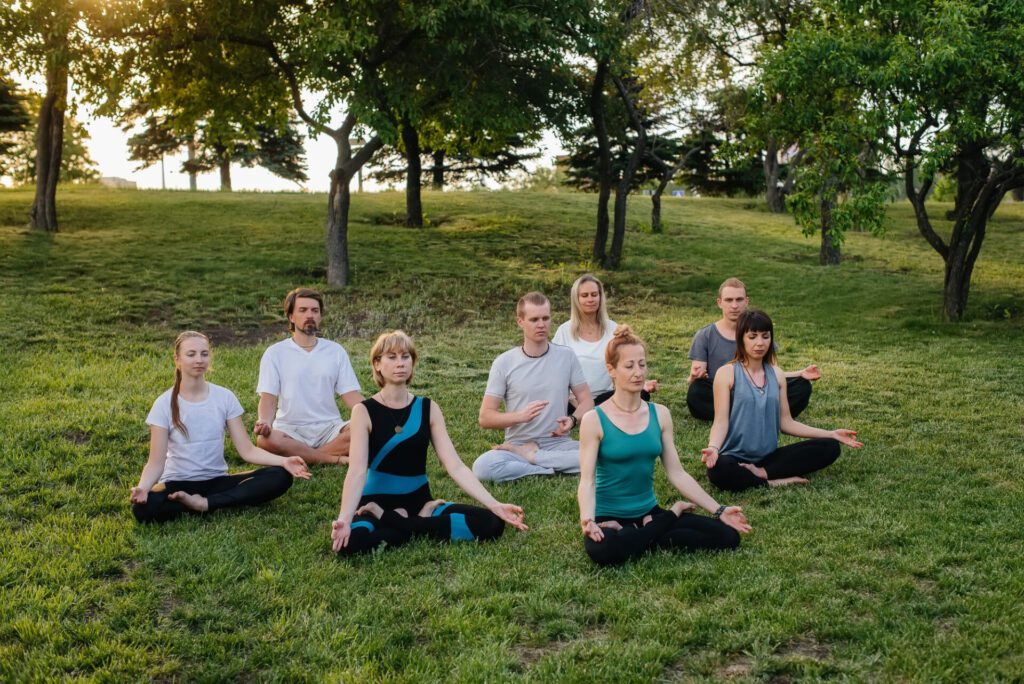Cultivating Healthier Habits for Mental and Physical Wellness

1. Introduction
In a world increasingly driven by fast-paced lifestyles, the importance of establishing a foundation of mental and physical wellness cannot be overstated. For families, this journey towards optimal health becomes an intertwined path of nurturing individual well-being and strengthening collective familial bonds. Cultivating such habits requires a concerted effort, a dash of creativity, and the will to consistently prioritize health.
2. 7 Healthy Habits for Family Wellness

The bedrock of a thriving family unit lies in the habits they collectively adopt. Such habits lay the groundwork for a holistic well-being that encompasses both mental and physical health.
-
Routine Family Activities:
Beyond the superficial layers of daily life lies the treasure of quality time. Activities like hiking, weekend board game nights, or collaborative cooking sessions don’t just offer relaxation but also knit the family closer. They offer a platform to share stories, exchange views, and build a repository of cherished memories.
-
Healthy Family Meals:
Nutrition plays an undeniable role in wellness. But beyond the nutrients, the act of preparing and consuming meals together becomes a ritual of bonding. Experimenting with healthy recipes, setting up themed dinner nights, or perhaps, growing a small vegetable garden together can make meal times anticipated moments of joy.
-
Regular Exercise:
A family that moves together, thrives together. Be it dance-offs, jogging, cycling, or even just evening walks, physical activities can be both fun and rewarding. They serve a dual purpose—instilling a love for fitness and fostering familial bonds.
-
Open Conversations:
In a world fraught with stressors, having a safe space to talk is invaluable. Encouraging regular family discussions where members share their highs and lows can create a supportive environment. An atmosphere where every member, young or old, feels heard and valued can be a massive boost to mental health.
-
Digital Detox:
Technological advances, while immensely beneficial, also bring challenges. Setting aside a ‘tech-free hour’ daily or perhaps, a tech-free weekend monthly, can make a significant difference. These detox periods can lead to enhanced creativity, richer interactions, and a more profound appreciation of the immediate environment.
-
Mindfulness and Meditation:
The buzz around mindfulness is well-justified. Introducing practices like guided meditation, deep-breathing exercises, or maintaining gratitude journals can help anchor the family to the present. Such exercises can be tools to handle stress, cultivate positivity, and foster a deeper understanding of oneself and others.
-
Consistent Sleep Schedule:
In the hustle and bustle of life, sleep often gets compromised. Yet, a rested body and mind are fundamental to overall health. By setting and adhering to a consistent sleep schedule, families can ensure they’re recharged and ready for the challenges and joys of the day.
3. Mental Wellness Habits for Parents

As the pillars of the family unit, parents carry the dual responsibility of managing their well-being while also steering the family. Here are practices specifically tailored for them.
-
Seek Expert Strategies:
Every parenting journey is unique. Yet, there are times when external perspectives can offer valuable insights. Whether it’s attending counseling sessions, workshops, or webinars, professional guidance can be a beacon in challenging times.
-
Self-Care Rituals:
While juggling myriad responsibilities, parents often sideline their own needs. Yet, a rejuvenated parent is an asset to the family. Setting aside a ‘self-care hour’—whether it’s for reading, a hobby, or even a power nap—can be transformative.
-
Connect with Other Parents:
There’s solace in shared experiences. Parenting groups, both offline and online, can provide avenues for mutual support, idea exchange, and sometimes, just a comforting space to vent and be understood.
-
Educate Yourself:
The world of parenting is ever-evolving. By dedicating time to read up, watch, or even attend lectures, parents can equip themselves with knowledge to better navigate the parenting labyrinth.
-
Mental Wellness Checks:
Mental health is as pivotal as physical health. Periodic check-ins with therapists or counselors can offer tools and strategies to maintain optimal mental well-being.
4. Global Wellness Practices for Families

Across the globe, varied cultures offer a treasure trove of wellness practices. Let’s delve into some that families can effortlessly incorporate.
-
Hygge from Denmark:
Beyond just a concept, Hygge is the Danish lifestyle of coziness and comfort. It’s about reveling in life’s simple pleasures, creating warm atmospheres, and enjoying the good moments, whether alone or with loved ones.
-
Shinrin-Yoku from Japan:
Literally translated to ‘forest bathing,’ this practice encourages individuals to connect with and immerse themselves in nature. Regularly practicing Shinrin-Yoku can be a balm to the urban weary soul, recharging both mind and body.
-
Siesta from Spain:
This age-old tradition of an afternoon nap isn’t just about rest. It’s a nod to the rhythm of life, acknowledging the need for pause and rejuvenation.
-
Meditation from India:
The world has embraced meditation for its profound benefits. A daily family meditation routine, even if it’s just for a few minutes, can center the mind, reduce stress, and instill a sense of balance.
-
Tai Chi from China:
This ancient martial art, characterized by its fluid movements, is not just physical exercise. It’s a dance of the soul and body, promoting harmony, balance, and deep relaxation.
5. Conclusion
The voyage towards holistic health and wellness is a continuous adventure, replete with its challenges and exhilarations. It demands commitment, flexibility, and an unwavering focus on the bigger picture – a happy, healthy, cohesive family unit. Every habit, every practice, every ritual is a brick in the edifice of family wellness. As readers embark on or continue their journey, reflection becomes crucial. Which practices resonate? What unique wellness habits does your family cherish? Sharing and learning are integral parts of this wellness odyssey. Let’s enrich each other’s lives with insights, stories, and shared wisdom.
6. FAQs ( Frequently Asked Questions) on Family Wellness)
Family wellness is a journey, and along this path, numerous questions arise. These questions reflect concerns, curiosity, and a genuine commitment to fostering a healthier family environment. Let’s delve deeper into some of these frequently asked questions, offering insights that can serve as stepping stones on your wellness journey.
Q1. What are the benefits of a digital detox for families?
A: In today’s hyper-connected era, the idea of a ‘digital detox’ is gaining traction, but why is it so pertinent for families?
- Improved Personal Interactions: Without the constant pings and notifications, families often find themselves communicating more deeply and meaningfully. It fosters genuine conversations, allowing family members to understand each other’s day, aspirations, and concerns.
- Enhanced Creativity: Free from the digital world’s distractions, children and adults can rekindle their imaginative streak, whether it’s through art, writing, or other creative pursuits.
- Mental Wellness: Constant digital exposure, especially to social media, can sometimes impact mental well-being, leading to comparison, anxiety, and even feelings of inadequacy. A detox can act as a reset, allowing the mind to relax and rejuvenate.
- Richer Experiences: Life is happening here and now. A break from screens often leads to families engaging more in outdoor activities, hobbies, and even simple joys like reading or playing board games.
Q2.How can parents ensure they’re not neglecting their own mental well-being?
A: Balancing parenthood with personal well-being can be challenging. Here’s how parents can navigate this:
- Dedicated ‘Me-Time’: Whether it’s a short daily walk, reading, or any relaxing activity, having a dedicated personal time can make a significant difference.
- Peer Interaction: Engaging with fellow parents, sharing experiences, and discussing challenges can be therapeutic. It reminds parents they’re not alone in their journey.
- Expert Guidance: Seeking therapy or counseling isn’t a sign of weakness. Sometimes, an objective perspective can offer invaluable insights and coping strategies.
- Self-Care Rituals: This can range from regular exercise, maintaining a hobby, to even simple mindfulness practices.
Q3.How do global wellness practices benefit family well-being?
A: Around the world, cultures have developed unique practices emphasizing well-being. How do they weave into the fabric of family health?
- Diverse Strategies: Every family is unique. Global wellness practices offer a vast palette of strategies catering to different needs and lifestyles.
- Holistic Wellness: Many global practices focus on the mind, body, and spirit, ensuring comprehensive well-being.
- Cultural Appreciation: Integrating global practices can be a way to teach children about diverse cultures, fostering openness and understanding.
Q4.Why is maintaining a consistent sleep schedule essential for families?
A: Sleep, often overlooked, is a cornerstone of health.
- Physical Health: Consistent sleep ensures the body repairs and rejuvenates, crucial for overall health and immunity.
- Cognitive Functions: A rested mind is more alert, improving productivity, and cognitive abilities.
- Emotional Balance: Sleep plays a pivotal role in regulating emotions. A good night’s rest can lead to more stable moods and better emotional responses.
- Family Rhythm: When the entire family follows a consistent sleep schedule, it sets a predictable daily rhythm, making planning and routines smoother.
Q5.How can families introduce mindfulness to their children?
A: Mindfulness, the practice of being present, is a gift families can give their children.
- Simple Exercises: Start with basic exercises like deep breathing or focusing on sounds around them. Guided meditations for kids are also available.
- Lead by Example: Children often emulate adults. When they see their parents practicing mindfulness, they’re more likely to be intrigued and follow suit.
- Gratitude Practices: Maintaining a family gratitude journal or sharing one thing they’re grateful for each day can instill mindfulness.
- Nature Walks: Engaging with nature, noticing the trees, the birds, or the feel of the wind, can be a natural introduction to mindfulness.
By exploring these FAQs in-depth, we hope to offer a clearer path and deeper understanding as families navigate their wellness journey. Remember, every family’s journey is unique, but the destination of holistic well-being is a shared aspiration.





